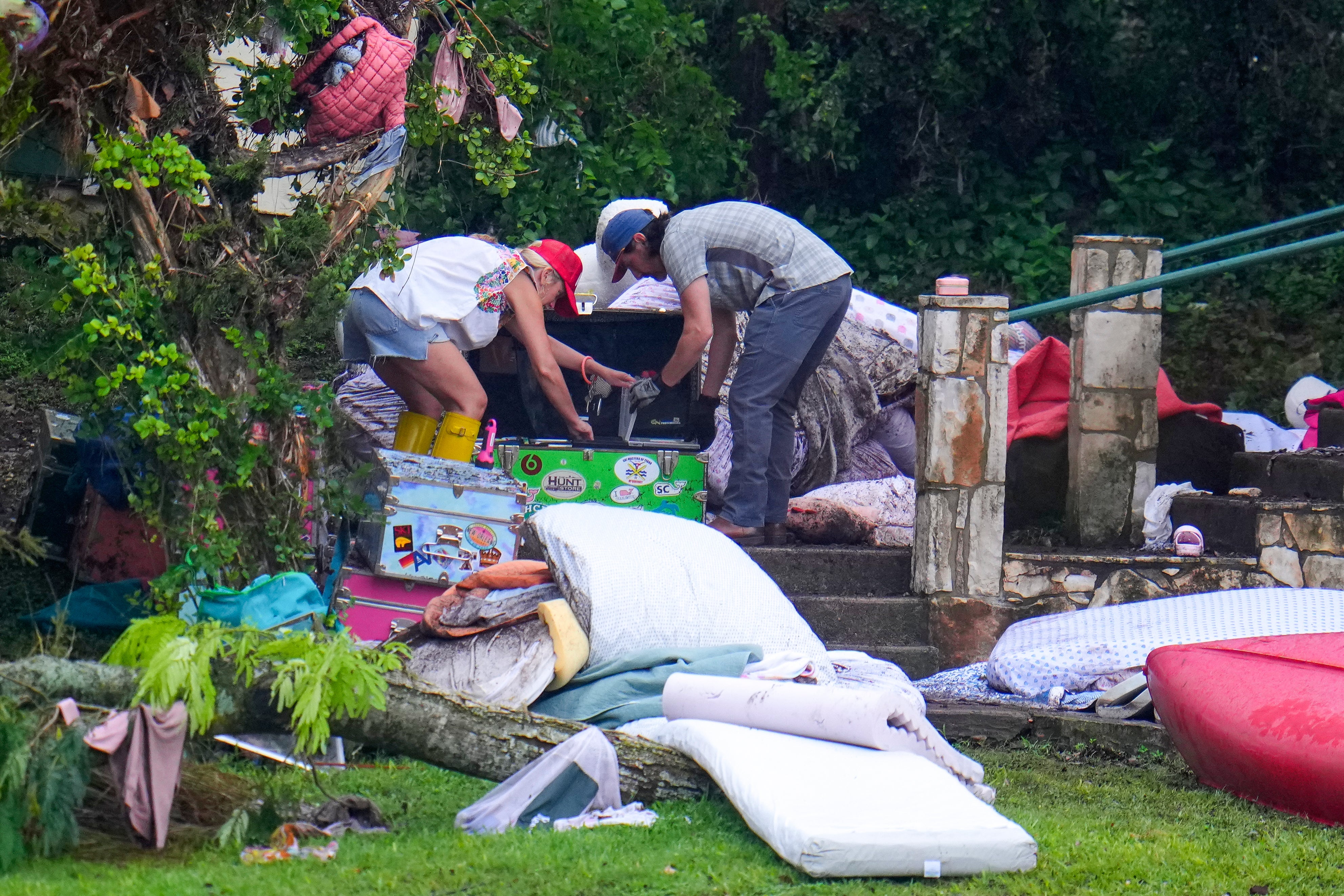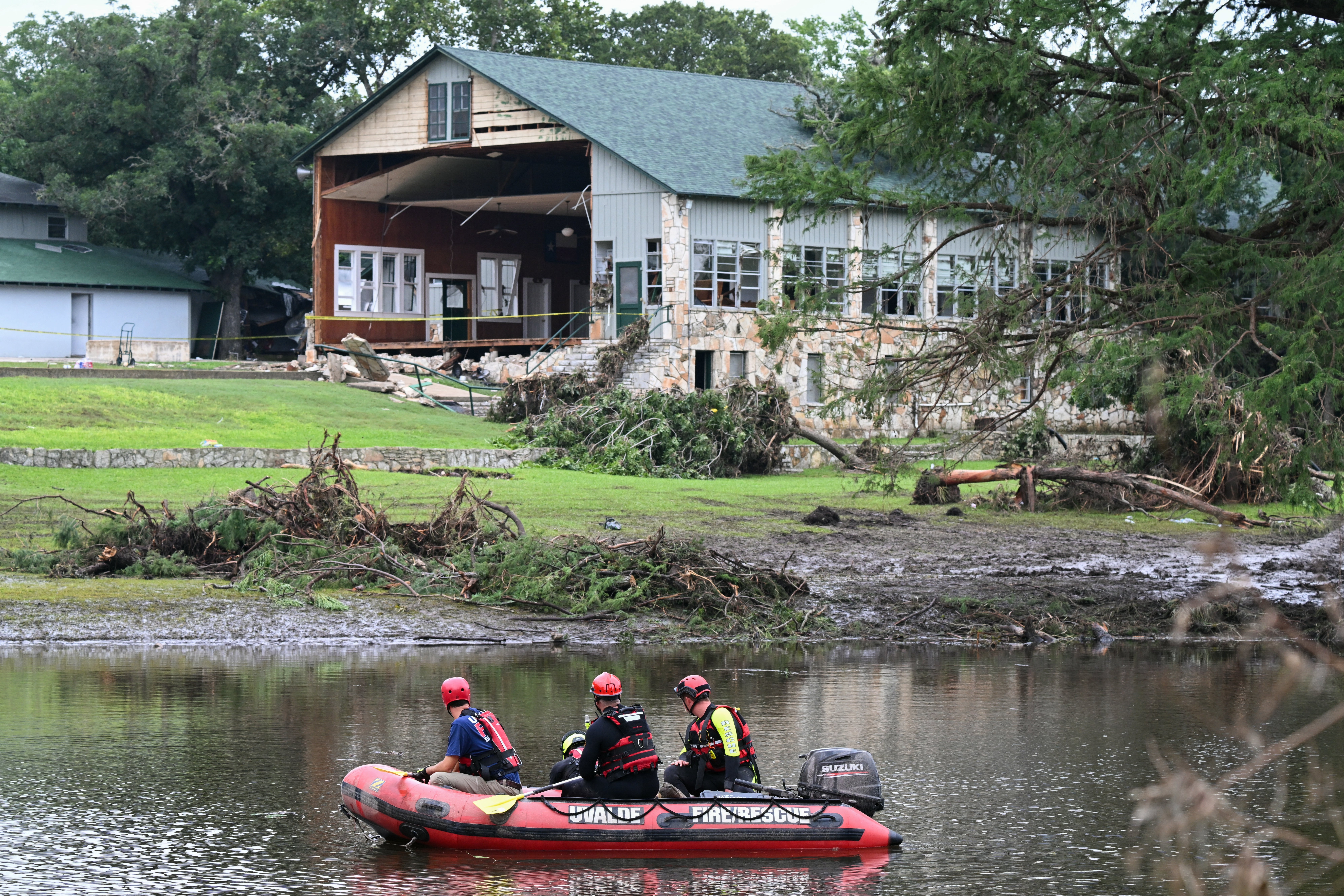Officials in Kerr County, Texas, had long been concerned about kids’ summer camps along the banks of the Guadalupe River, an area known as “flash flood alley.”
The camps in the idyllic Texas Hill Country, where children from the surrounding big cities of San Antonio, Austin and Fredericksburg came to fish, horseback ride, and snorkel, relied on a word-of-mouth system from camps further up river when it came to flooding, according to The New York Times.
But in 2015, a flood in Wimberley, 75 miles east of Kerrville, killed 13 people and hundreds of homes were destroyed and damaged when the Blanco River crested to nearly 30 feet in a matter of hours.
It brought the dangers of flash flooding front of mind for officials in Kerr County who debated at local meetings whether to bolster their flood emergency system with weather sirens now used by other cities.
Tom Moser, a former Kerr County commissioner, proposed that Kerrville establish a similar system to one that had been put in place in Wimberley.
But it was deemed to expensive by fellow commissioners.
“It sort of evaporated,” Moser, who retired in 2021, told The Times. “It just didn’t happen.”
Last week, downpours and catastrophic flooding in Hill Country devastated Camp Mystic, the Christian girls’ summer camp on the Guadalupe River.
The river rapidly rose 20 feet in 95 minutes in the early hours of the morning.
Camp Mystic confirmed Monday that 27 girls, some as young as eight, and staffers had been killed. Ten girls remain missing and one counselor, according to local officials.
Moser wasn’t the only one who had pushed for a better emergency warning system, according to The Wall Street Journal.
Former Kerr County Sheriff Rusty Hierholzer, who had responded to the 1987 floods that killed teens at a camp in Kendall County, was hoping to install outdoor warning sirens in Kerrville.
The sirens in Kendall County, which is about 81 miles away from Kerr County, went off on Friday.

Rob Kelly, the Kerr County judge and its most senior elected official, also said budget concerns waylaid any action.
“Taxpayers won’t pay for it,” Kelly recently told The Times. He said he didn’t know if people might reconsider in the wake of this tragedy.
In 2018, Kerr County applied for a $1 million grant for a flood warning system. The application was not selected, according to KXAN. In 2020, a commissioner said the county had been “trying to get a new flood warning system here.”
As recently as a May budget meeting, commissioners were discussing a system being developed by a regional agency.
Attempts to improve response on a state level were also met with resistance in the last few months. A bill that would have established a statewide plan to improve the state’s disaster response did not pass at the statehouse.
But, had it passed, it still would not have gone into effect until after the Hill Country flooding, The Texas Tribune noted.

And it’s not just smaller communities that lacked warning systems.
The city of Austin, which also saw fatalities in the floods and is one of the state’s largest cities and home to nearly 1 million residents, doesn’t have an emergency warning system.
But, a spokesperson for the city of Austin told KXAN the fastest way to get information out is with “the technology we have today” and there was a concern that sirens could “cause confusion.”
Since the disaster, 446 people have signed a change.org petition for an early warning siren system in Kerr County.

Moser said Kerr County had previously taken some measures to mitigate potential danger, including installing flood gauges and barriers, according to The Washington Post.
This weekend, Texas Governor Greg Abbott says a special session at the Capitol will focus on better warnings for floods.
It’s hard to know how much of a difference a flood warning system would have made last Friday, Moser said. But, he believes it could have had some benefit.
As of Monday afternoon, the death toll stood at 91 people with dozens more still missing.
“I think it could have helped a lot of people,” said Moser.







